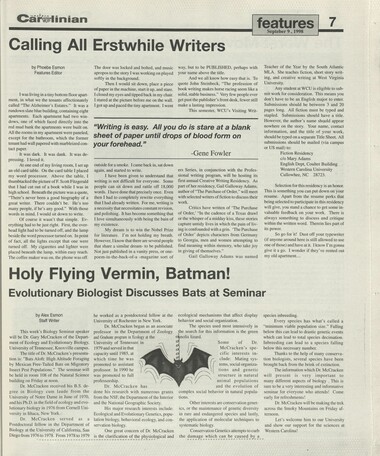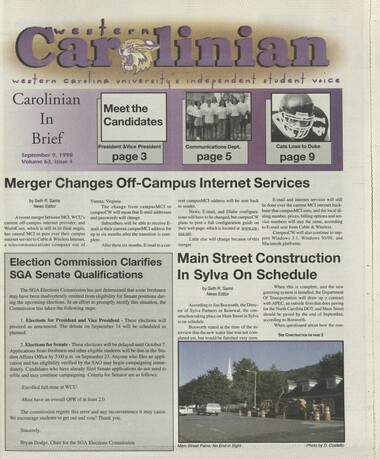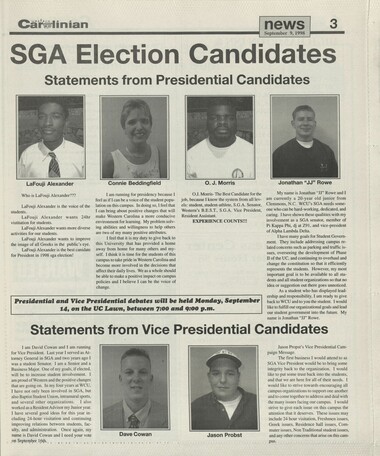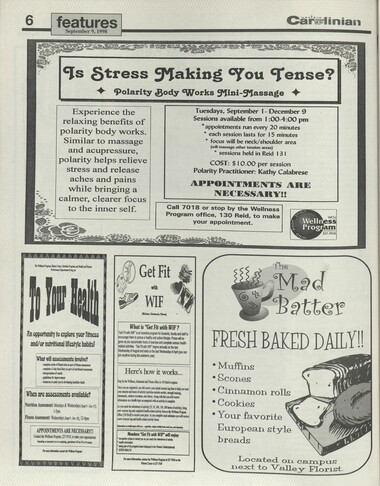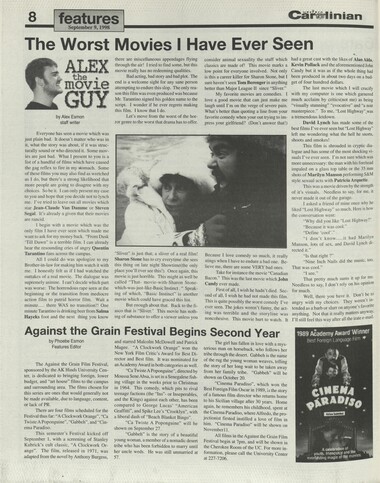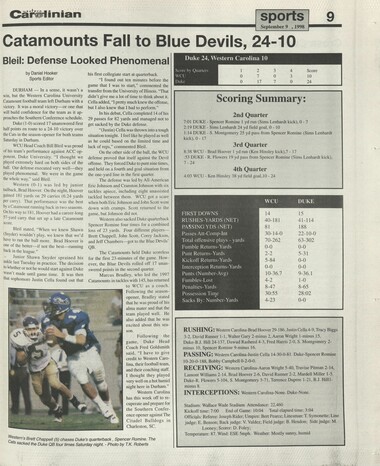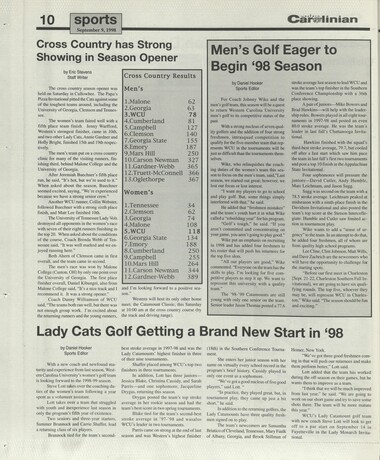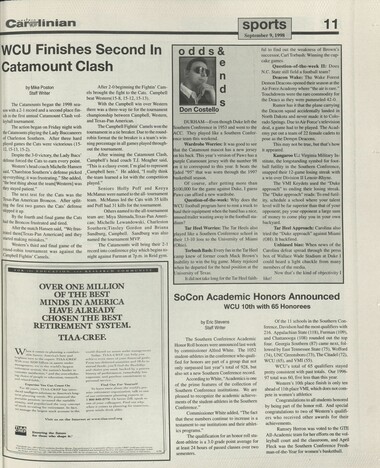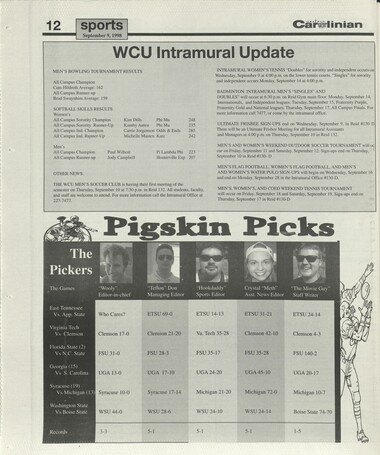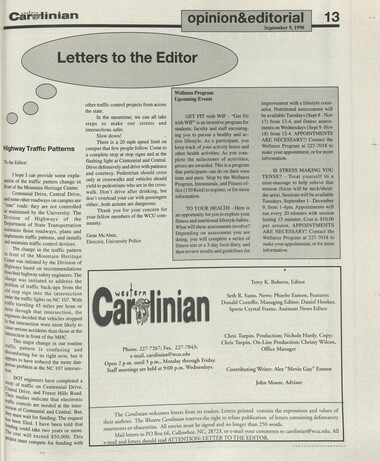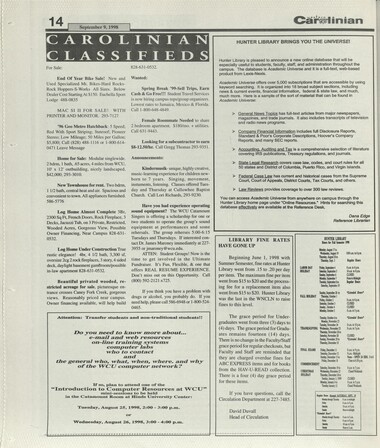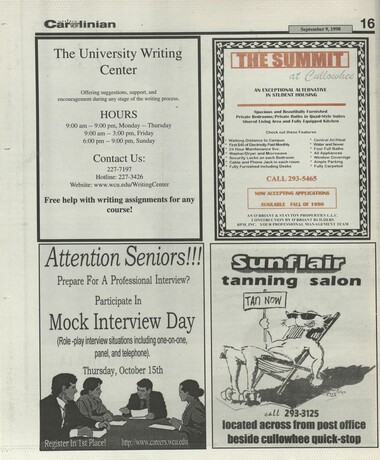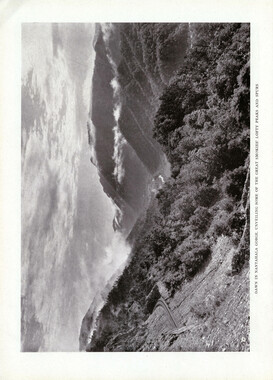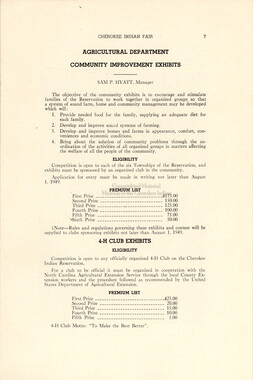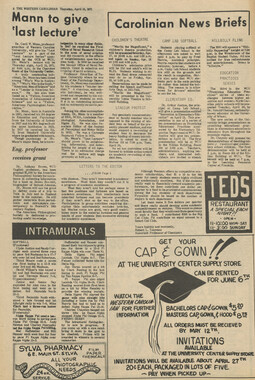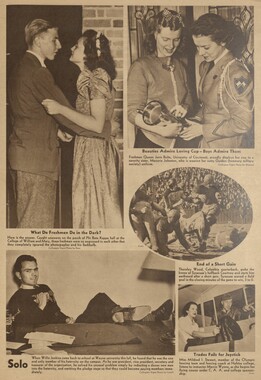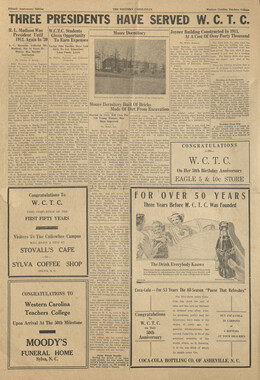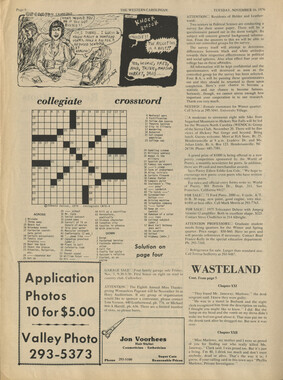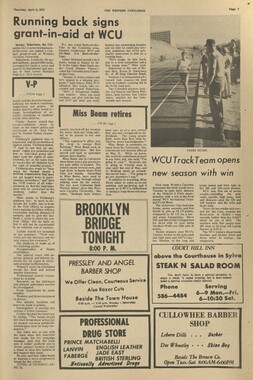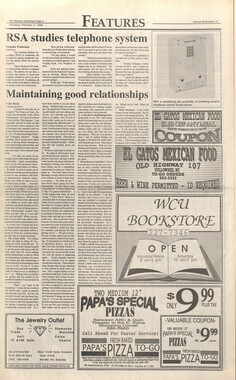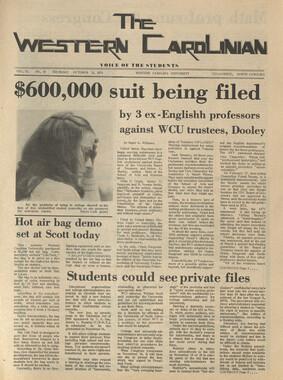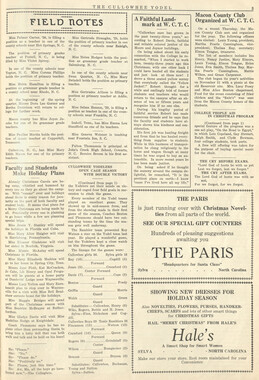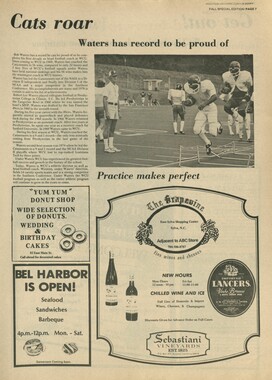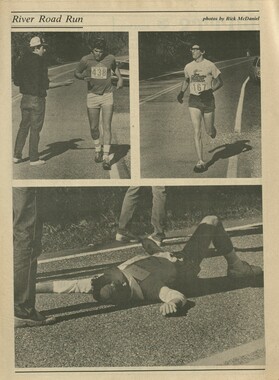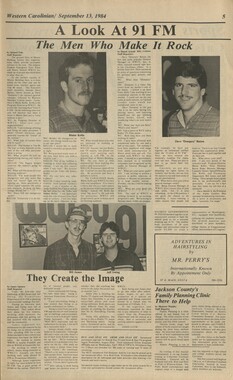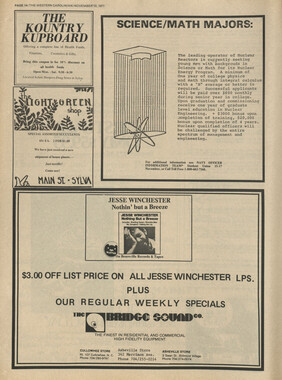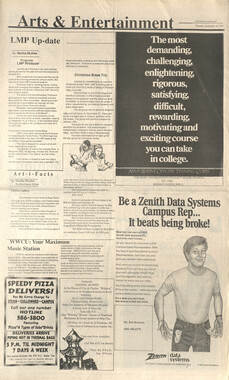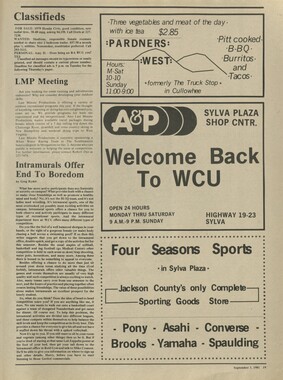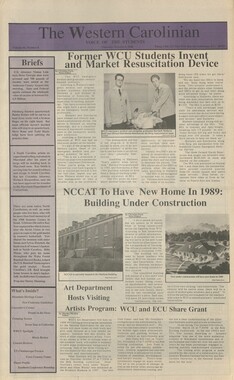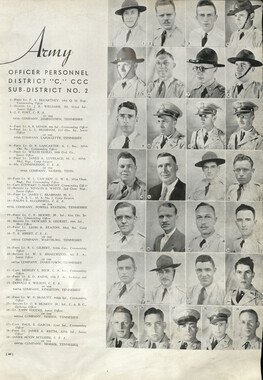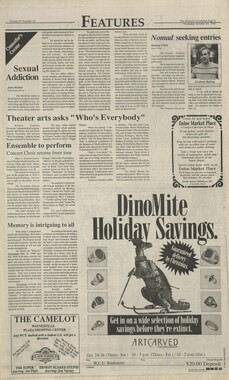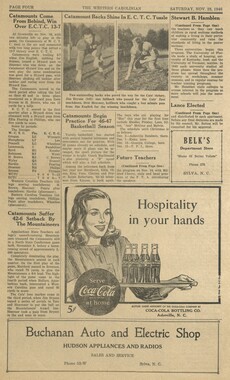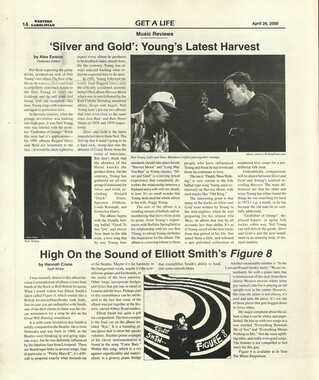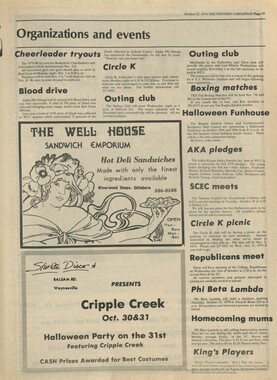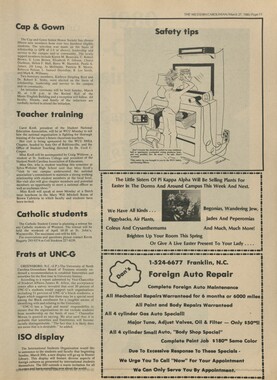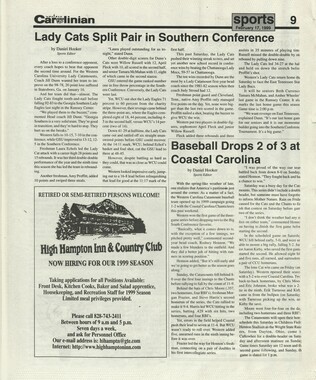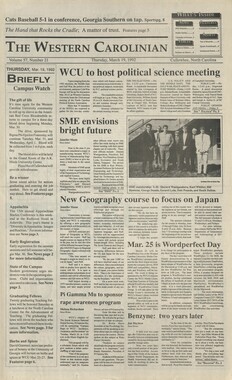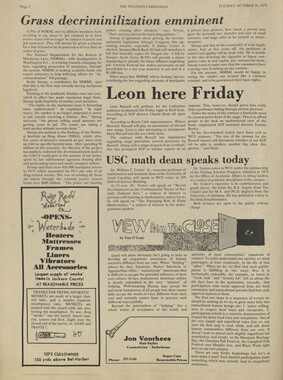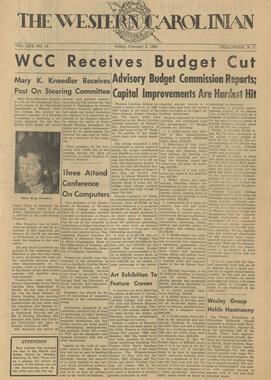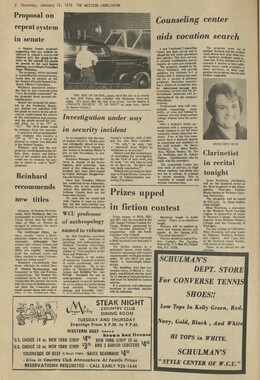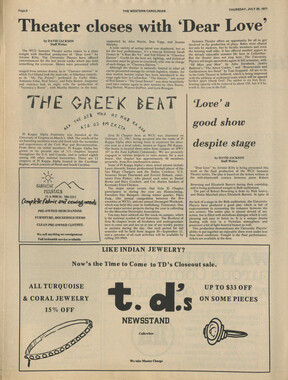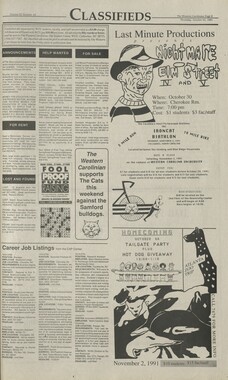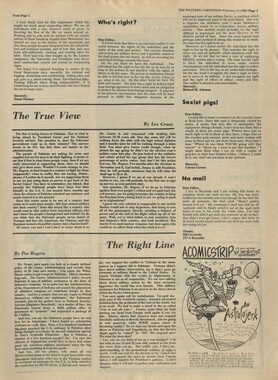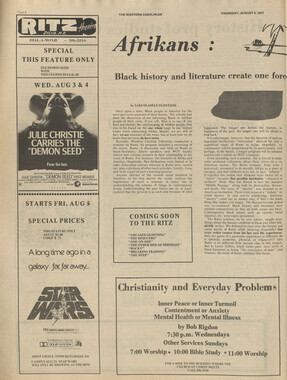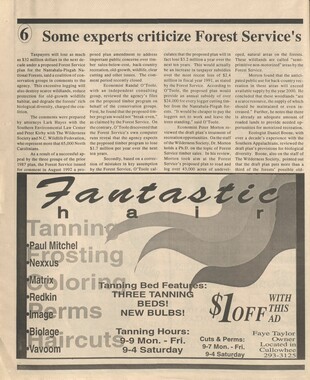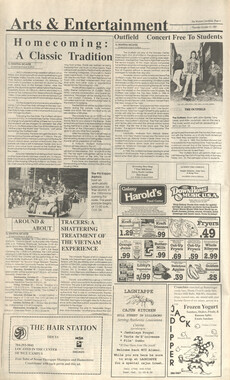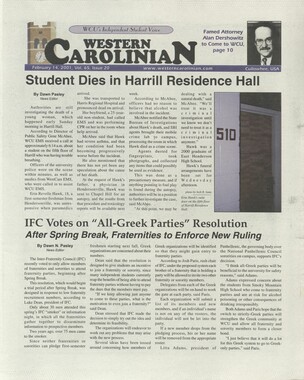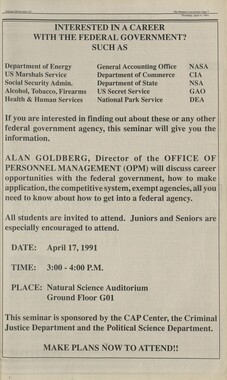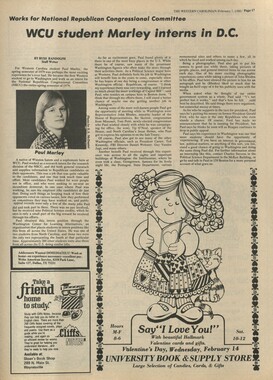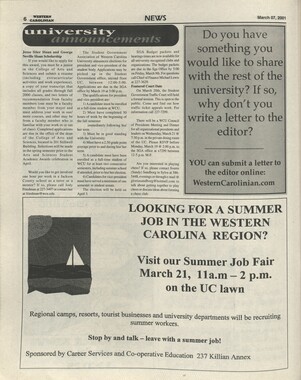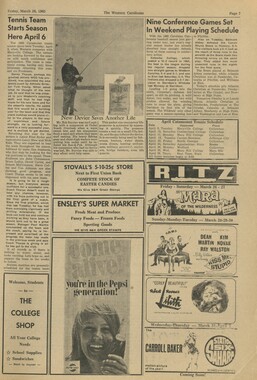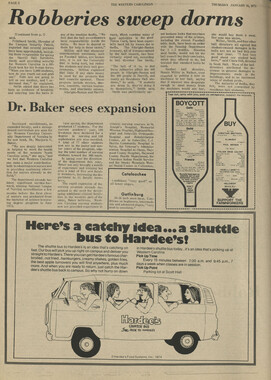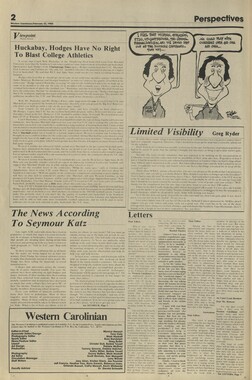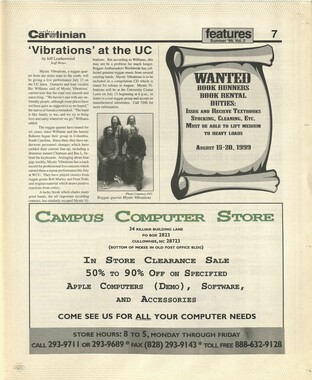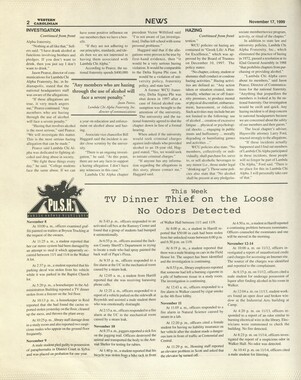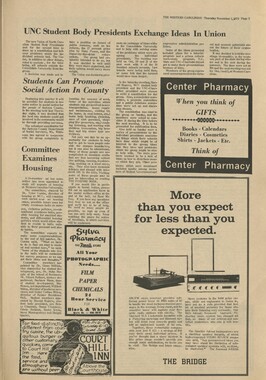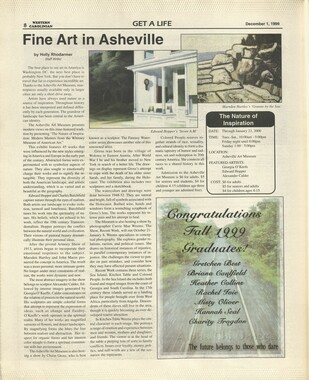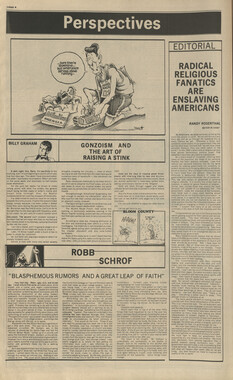Western Carolina University (20)
View all
- Canton Champion Fibre Company (2308)
- Cherokee Traditions (293)
- Civil War in Southern Appalachia (165)
- Craft Revival (1942)
- Great Smoky Mountains - A Park for America (2767)
- Highlights from Western Carolina University (430)
- Horace Kephart (941)
- Journeys Through Jackson (154)
- LGBTQIA+ Archive of Jackson County (26)
- Oral Histories of Western North Carolina (314)
- Picturing Appalachia (6772)
- Stories of Mountain Folk (413)
- Travel Western North Carolina (160)
- Western Carolina University Fine Art Museum Vitreograph Collection (129)
- Western Carolina University Herbarium (92)
- Western Carolina University: Making Memories (708)
- Western Carolina University Publications (2283)
- Western Carolina University Restricted Electronic Theses and Dissertations (146)
- Western North Carolina Regional Maps (71)
- World War II in Southern Appalachia (131)
University of North Carolina Asheville (6)
View all
- Allanstand Cottage Industries (62)
- Appalachian National Park Association (53)
- Bennett, Kelly, 1890-1974 (1388)
- Berry, Walter (76)
- Brasstown Carvers (40)
- Carver, George Washington, 1864?-1943 (26)
- Cathey, Joseph, 1803-1874 (1)
- Champion Fibre Company (233)
- Champion Paper and Fibre Company (297)
- Cherokee Indian Fair Association (16)
- Cherokee Language Program (22)
- Crowe, Amanda (40)
- Edmonston, Thomas Benton, 1842-1907 (7)
- Ensley, A. L. (Abraham Lincoln), 1865-1948 (275)
- Fromer, Irving Rhodes, 1913-1994 (70)
- George Butz (BFS 1907) (46)
- Goodrich, Frances Louisa (120)
- Grant, George Alexander, 1891-1964 (96)
- Heard, Marian Gladys (60)
- Kephart, Calvin, 1883-1969 (15)
- Kephart, Horace, 1862-1931 (313)
- Kephart, Laura, 1862-1954 (39)
- Laney, Gideon Thomas, 1889-1976 (439)
- Masa, George, 1881-1933 (61)
- McElhinney, William Julian, 1896-1953 (44)
- Niggli, Josephina, 1910-1983 (10)
- North Carolina Park Commission (105)
- Osborne, Kezia Stradley (9)
- Owens, Samuel Robert, 1918-1995 (11)
- Penland Weavers and Potters (36)
- Roberts, Vivienne (15)
- Roth, Albert, 1890-1974 (142)
- Schenck, Carl Alwin, 1868-1955 (1)
- Sherrill's Photography Studio (2565)
- Southern Highland Handicraft Guild (127)
- Southern Highlanders, Inc. (71)
- Stalcup, Jesse Bryson (46)
- Stearns, I. K. (213)
- Thompson, James Edward, 1880-1976 (226)
- United States. Indian Arts and Crafts Board (130)
- USFS (683)
- Vance, Zebulon Baird, 1830-1894 (1)
- Weaver, Zebulon, 1872-1948 (58)
- Western Carolina College (230)
- Western Carolina Teachers College (282)
- Western Carolina University (1794)
- Western Carolina University. Mountain Heritage Center (18)
- Whitman, Walt, 1819-1892 (10)
- Wilburn, Hiram Coleman, 1880-1967 (73)
- Williams, Isadora (3)
- Cain, Doreyl Ammons (0)
- Crittenden, Lorraine (0)
- Rhodes, Judy (0)
- Smith, Edward Clark (0)
- Appalachian Region, Southern (2399)
- Asheville (N.C.) (1917)
- Avery County (N.C.) (26)
- Blount County (Tenn.) (161)
- Buncombe County (N.C.) (1671)
- Cherokee County (N.C.) (283)
- Clay County (N.C.) (555)
- Graham County (N.C.) (233)
- Great Smoky Mountains National Park (N.C. and Tenn.) (510)
- Haywood County (N.C.) (3522)
- Henderson County (N.C.) (70)
- Jackson County (N.C.) (4692)
- Knox County (Tenn.) (25)
- Knoxville (Tenn.) (12)
- Lake Santeetlah (N.C.) (10)
- Macon County (N.C.) (420)
- Madison County (N.C.) (211)
- McDowell County (N.C.) (39)
- Mitchell County (N.C.) (132)
- Polk County (N.C.) (35)
- Qualla Boundary (981)
- Rutherford County (N.C.) (76)
- Swain County (N.C.) (2113)
- Transylvania County (N.C.) (247)
- Watauga County (N.C.) (12)
- Waynesville (N.C.) (73)
- Yancey County (N.C.) (72)
- Aerial Photographs (3)
- Aerial Views (60)
- Albums (books) (4)
- Articles (1)
- Artifacts (object Genre) (228)
- Bibliographies (1)
- Biography (general Genre) (2)
- Cards (information Artifacts) (38)
- Clippings (information Artifacts) (191)
- Crafts (art Genres) (622)
- Depictions (visual Works) (21)
- Design Drawings (1)
- Drawings (visual Works) (184)
- Envelopes (73)
- Facsimiles (reproductions) (1)
- Fiction (general Genre) (4)
- Financial Records (12)
- Fliers (printed Matter) (67)
- Glass Plate Negatives (381)
- Guidebooks (2)
- Internegatives (10)
- Interviews (812)
- Land Surveys (102)
- Letters (correspondence) (1013)
- Manuscripts (documents) (619)
- Maps (documents) (177)
- Memorandums (25)
- Minutes (administrative Records) (59)
- Negatives (photographs) (5835)
- Newsletters (1285)
- Newspapers (2)
- Occupation Currency (1)
- Paintings (visual Works) (1)
- Pen And Ink Drawings (1)
- Periodicals (193)
- Personal Narratives (10)
- Photographs (12976)
- Plans (maps) (1)
- Poetry (7)
- Portraits (1960)
- Postcards (329)
- Programs (documents) (151)
- Publications (documents) (2237)
- Questionnaires (65)
- Scrapbooks (282)
- Sheet Music (2)
- Slides (photographs) (402)
- Songs (musical Compositions) (2)
- Sound Recordings (796)
- Specimens (92)
- Speeches (documents) (15)
- Tintypes (photographs) (8)
- Transcripts (322)
- Video Recordings (physical Artifacts) (23)
- Vitreographs (129)
- Text Messages (0)
- A.L. Ensley Collection (275)
- Appalachian Industrial School Records (7)
- Appalachian National Park Association Records (336)
- Axley-Meroney Collection (2)
- Bayard Wootten Photograph Collection (20)
- Bethel Rural Community Organization Collection (7)
- Blumer Collection (5)
- C.W. Slagle Collection (20)
- Canton Area Historical Museum (2110)
- Carlos C. Campbell Collection (282)
- Cataloochee History Project (65)
- Cherokee Studies Collection (4)
- Daisy Dame Photograph Album (5)
- Daniel Boone VI Collection (1)
- Doris Ulmann Photograph Collection (112)
- Elizabeth H. Lasley Collection (1)
- Elizabeth Woolworth Szold Fleharty Collection (4)
- Frank Fry Collection (95)
- George Masa Collection (173)
- Gideon Laney Collection (452)
- Hazel Scarborough Collection (2)
- Hiram C. Wilburn Papers (28)
- Historic Photographs Collection (236)
- Horace Kephart Collection (861)
- Humbard Collection (33)
- Hunter and Weaver Families Collection (1)
- I. D. Blumenthal Collection (4)
- Isadora Williams Collection (4)
- Jesse Bryson Stalcup Collection (47)
- Jim Thompson Collection (224)
- John B. Battle Collection (7)
- John C. Campbell Folk School Records (80)
- John Parris Collection (6)
- Judaculla Rock project (2)
- Kelly Bennett Collection (1407)
- Love Family Papers (11)
- Major Wiley Parris Civil War Letters (3)
- Map Collection (12)
- McFee-Misemer Civil War Letters (34)
- Mountain Heritage Center Collection (4)
- Norburn - Robertson - Thomson Families Collection (44)
- Pauline Hood Collection (7)
- Pre-Guild Collection (2)
- Qualla Arts and Crafts Mutual Collection (12)
- R.A. Romanes Collection (681)
- Rosser H. Taylor Collection (1)
- Samuel Robert Owens Collection (94)
- Sara Madison Collection (144)
- Sherrill Studio Photo Collection (2558)
- Smoky Mountains Hiking Club Collection (616)
- Stories of Mountain Folk - Radio Programs (374)
- The Reporter, Western Carolina University (510)
- Venoy and Elizabeth Reed Collection (16)
- WCU Gender and Sexuality Oral History Project (32)
- WCU Mountain Heritage Center Oral Histories (25)
- WCU Oral History Collection - Mountain People, Mountain Lives (71)
- WCU Students Newspapers Collection (1744)
- Western North Carolina Tomorrow Black Oral History Project (69)
- William Williams Stringfield Collection (2)
- Zebulon Weaver Collection (109)
- African Americans (390)
- Appalachian Trail (35)
- Artisans (521)
- Cherokee art (84)
- Cherokee artists -- North Carolina (10)
- Cherokee language (21)
- Cherokee pottery (101)
- Cherokee women (208)
- Church buildings (167)
- Civilian Conservation Corps (U.S.) (110)
- College student newspapers and periodicals (1830)
- Dams (103)
- Dance (1023)
- Education (222)
- Floods (61)
- Folk music (1015)
- Forced removal, 1813-1903 (2)
- Forest conservation (220)
- Forests and forestry (1058)
- Gender nonconformity (4)
- Great Smoky Mountains National Park (N.C. and Tenn.) (181)
- Hunting (38)
- Landscape photography (10)
- Logging (103)
- Maps (84)
- Mines and mineral resources (8)
- North Carolina -- Maps (18)
- Paper industry (38)
- Postcards (255)
- Pottery (135)
- Railroad trains (71)
- Rural electrification -- North Carolina, Western (3)
- School integration -- Southern States (2)
- Segregation -- North Carolina, Western (5)
- Slavery (5)
- Sports (452)
- Storytelling (245)
- Waterfalls -- Great Smoky Mountains (N.C. and Tenn.) (66)
- Weaving -- Appalachian Region, Southern (280)
- Wood-carving -- Appalachian Region, Southern (328)
- World War, 1939-1945 (173)
Western Carolinian Volume 63 (64) Number 04
Item
Item’s are ‘child’ level descriptions to ‘parent’ objects, (e.g. one page of a whole book).
-
-
■man Calling All Erstwhile Writers by Phoebe Esmon Features Editor I was living in a tiny bottom floor apartment, in what we the tenants affectionately called "The Alzheimer's Estates." It was a rundown slate blue building, containing eight apartments. Each apartment had two windows, one of which faced directly into the red mud bank the apartments were built on. All the rooms in my apartment were paneled, except for the bathroom, which the former tenant had wall papered with marbleized contact paper. It was dark. It was dank. It was depressing. I loved it. At one end of my living room, I set up an old card table. On the card table I placed my word processor. Above the table, I thumbtacked the picture of F. Scott Fitzgerald that I had cut out of a book while I was in high school. Beneath the picture was a quote, "There's never been a good biography of a great writer. There couldn't be. He's too many people, if he's any good." With those words in mind, I would sit down to write. Of course it wasn't that simple. Everything had to be just right. First, the overhead light had to be turned off, and the lamp beside the word processor turned on. In point of fact, all the lights except that one were turned off. My cigarettes and lighter were placed beneath the lamp, within easy reach. The coffee maker was on, the phone was off. The door was locked and bolted, and music apropos to the story I was working on played softly in the background. Then I would sit down, place a piece of paper in the machine, start it up, and stare. I closed my eyes and tipped back in my chair. I stared at the picture before me on the wall. I got up and paced the tiny apartment. I went way, but to be PUBLISHED, perhaps with your name above the title. And we all know how easy that is. To quote John Steinbeck, "The profession of book writing makes horse racing seem like a solid, stable business." Very few people ever get past the publisher's front desk, fewer still make a lasting impression. This semester, WCU's Visiting Writ- "Writing is easy. All you do is stare at a blank sheet of paper until drops of blood form on your forehead." -Gene Fowler outside for a smoke. I came back in, sat down again, and started to write. I have been given to understand that writing is not difficult for everyone. Some people can sit down and rattle off 18,000 words. I have done that precisely once. Even then I had to completely rewrite everything that I had already written. For me, writing is a necessity that necessitates constant revision, and polishing. It has become something that I love simultaneously with being the bain of my existence. My dream is to win the Nobel Prize for literature. I'm not holding my breath. However, I know that there are several people that share a similar dream- to be published. Not just published in a vanity press, or one- poem-in-the-back-of-a -magazine sort of ers Series, in conjunction with the Professional writing program, will be hosting its first annual Creative Writing Residency. As part of her residency, Gail Galloway Adams, author of "The Purchase of Order," will meet with selected writers of fiction to discuss their work. Critics have written of 'The Purchase of Order,' "In the cadence of a Texas drawl or the whisper of a midday kiss, these stories capture untidy lives in which the pain of living is confounded with a grin. 'The Purchase of Order' depicts characters from Germany to Georgia, men and women attempting to find meaning within memory, who take joy in giving of themselves." Gail Galloway Adams was named Teacher of the Year by the South Atlantic MLA. She teaches fiction, short story writing, and creative writing at West Virginia University. Any student at WCU is eligible to submit work for consideration. This means you don't have to be an English major to enter. Submissions should be between 3 and 20 pages long. All fiction must be typed and stapled. Submissions should have a title. However, the author's name should appear nowhere on the story. Your name, contact information, and the title of your work, should be typed on a separate Title Sheet. All submissions should be mailed (via campus or US mail) to: Fiction Residency c/o Mary Adams English Dept, Coulter Building Western Carolina University Cullowhee, NC 28723. Selection for this residency is an honor. This is something you can put down on your resume. Apart from the resume perks that being selected to participate in this residency will give, you stand a chance to get some invaluable feedback on your work. There is always something to discuss and critique within the written word. Therein lies part of its power. So go for it! Dust off your typewriter (if anyone around here is still allowed to use one of those) and have at it. I know I'm gonna give it a go. I wonder if they've rented out my old apartment.... Holy Flying Vermin, Batman! Evolutionary Biologist Discusses Bats at Seminar by Alex Esmon Staff Writer This week's Biology Seminar speaker will be Dr. Gary McCracken of the Department of Ecology and Evolutionary Biology, University of Tennessee, Knoxville campus. The title of Dr. McCracken's presentation is: "Bats Aloft: High Altitude Foraging by Mexican Free-Tailed Bats on Migratory Insect Pest Populations." The seminar-will be held in room 108 of the Natural Science building on Friday at noon. Dr. McCracken received his B.S. degree in Biology cum laude from the University of Notre Dame in June of 1970, and his Ph.D. in the field of ecology and evolutionary biology in 1976 from Cornell University in Ithaca, New York. Dr. McCracken served as a Postdoctoral fellow in the Department of Biology at the University of California, San Diego from 1976 to 1978. From 1978 to 1979 he worked as a postdoctoral fellow at the University of Rochester in New York. Dr. McCracken began as an associate professor in the Department of Zoology and Graduate program in Ecology at the University of Tennessee in 1979 and served in that capacity until 1985, at which time he was promoted to assistant professor. In 1990 he was promoted to full professorship. Dr. McCracken has done his research with numerous grants from the NSF, the Department of the Interior and the National Geographic Society. His major research interests include: Ecological and Evolutionary Genetics, population biology, behavioral ecology, and conservation biology. One great concern of Dr. McCracken is the clarification of the physiological and ecological mechanisms that affect display behavior and social organization. The species used most intensively in the search for this information is the green nolis lizard. Some of Dr. McCracken's specific interests in- s- elude: Mating sys- ' f terns, social organizations and genetic structure in natural animal populations and the evolution of complex social behavior in natural populations. Other interests are conservation genetics, or the maintenance of genetic diversity in rare and endangered species and lastly, the application of molecular techniques to systematic biology. Conservation Genetics attempts to curb the damage which can be caused b^ a species inbreeding. Every species has what's called a "minimum viable population size." Falling below this can lead to drastic genetic events which can lead to total species decimation. Inbreeding can lead to a species falling below this necessary number. Thanks to the help of many conservation biologists, several species have been brought back from the brink of extinction. The information which Dr. McCracken will present is very important to many different aspects of biology . This is sure to be a very interesting and informative seminar for everyone who attends! Come early for refreshments! Dr. McCracken will be making the trek across the Smoky Mountains on Friday afternoon. Let's welcome him to our University and show our support for the sciences at Western Carolina!
Object
Object’s are ‘parent’ level descriptions to ‘children’ items, (e.g. a book with pages).
-
The Western Carolinian is Western Carolina University's student-run newspaper. The paper was published as the Cullowhee Yodel from 1924 to 1931 before changing its name to The Western Carolinian in 1933.
-
